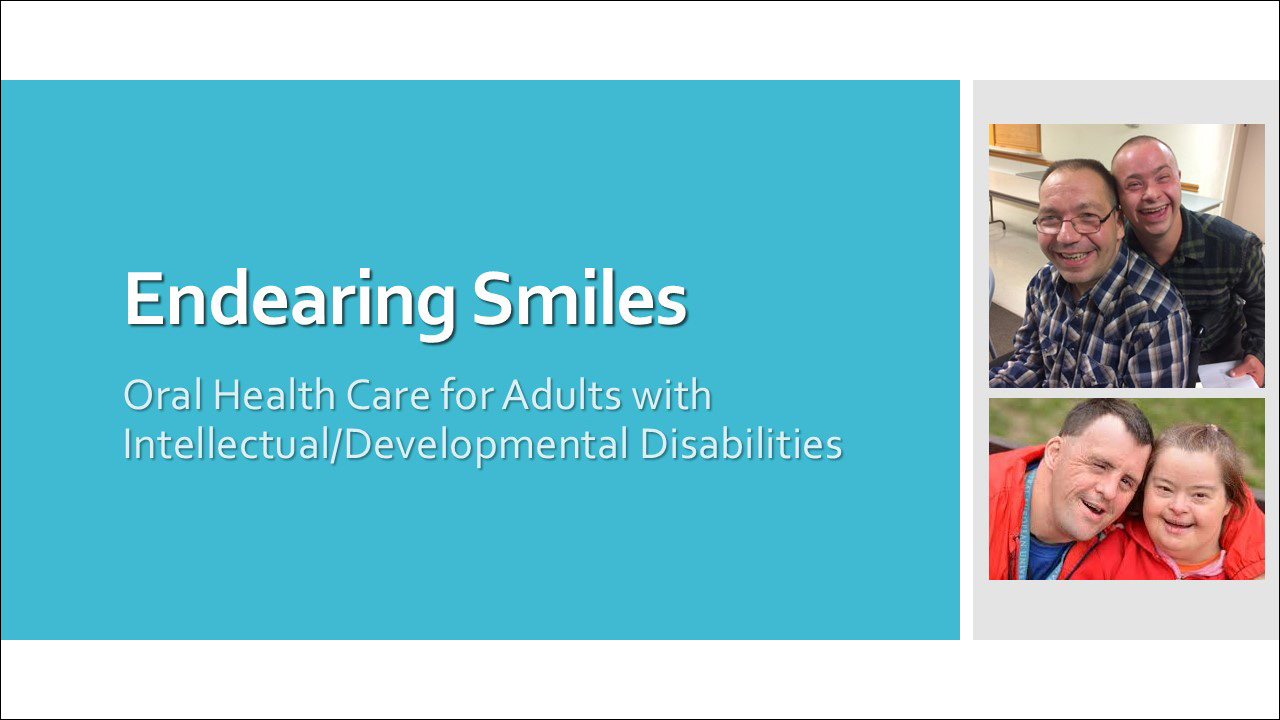Enduring Smiles: Improving the Oral Health of Long-Term Care Residents
- Informing independent older adults about the oral health issues and changes they may experience in the future.
- Training public health dental hygienists to teach oral health to elder facility staff.
- Educating direct care staff and caregivers to improve elder oral health.
The program is a partnership between the UNMC College of Dentistry, Nebraska Community Foundation, and the Nebraska Department of Health and Human Services.
Module 1
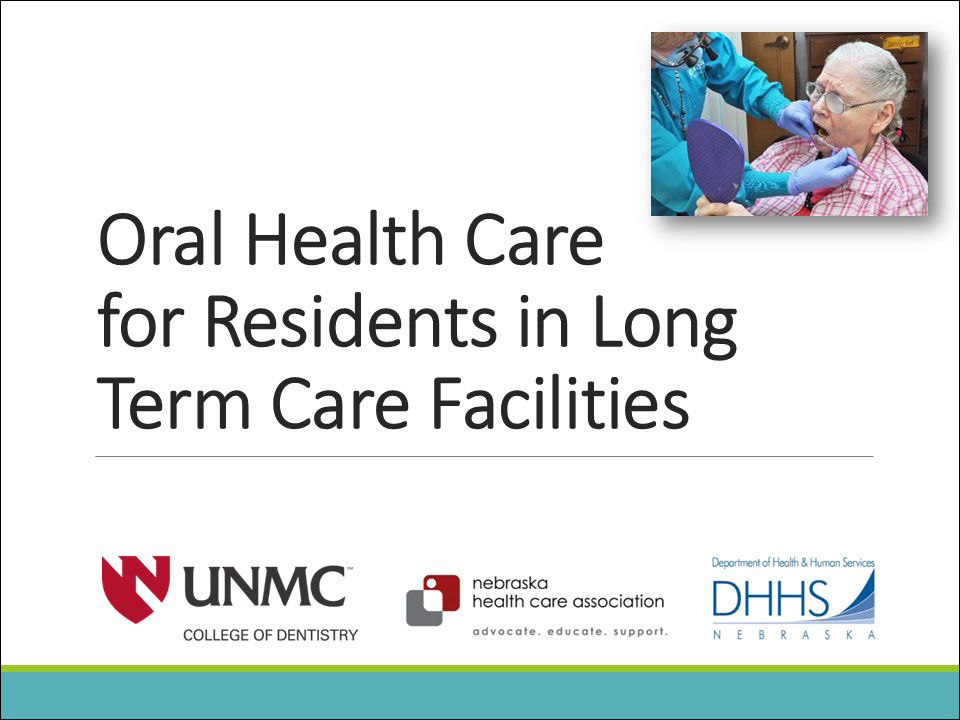
Download PowerPoint -or- View PowerPoint with Voiceover
Learning Objectives: 1.) increase direct care providers’ awareness of the importance of providing / supervising daily oral care for the long-term care resident; 2.) implement effective oral care measures for the long-term care residents and their direct care providers; 3.) direct care providers will be able to recognize and report oral pain and abnormal conditions in residents’ mouths to charge nurse or dentist; and 4.) direct care providers will utilize correct behavior management and communication strategies when providing oral health care for long term care residents.
Objectives | Quiz | Quiz Answers | Evaluation | Certificate of Completion
Module 2
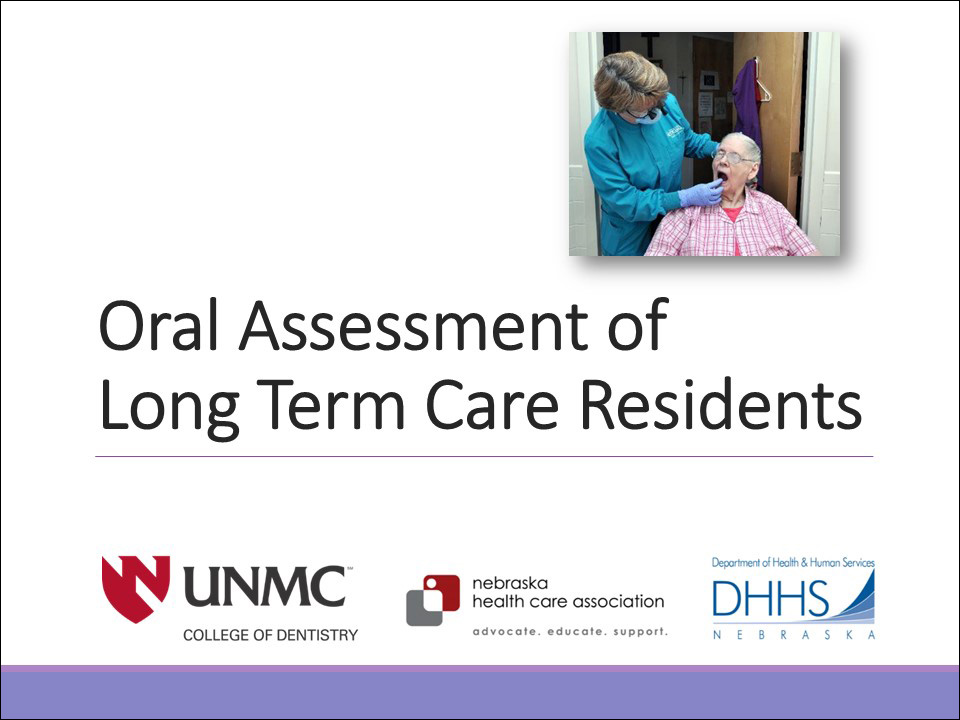
Download PowerPoint -or- View PowerPoint with Voiceover
Learning Objectives: 1.) direct care providers will be able to perform an oral health assessment, identifying normal anatomy and conditions; 2.) direct care providers will be able to recognize and report oral pain and suspicious / abnormal conditions in residents’ mouths to charge nurse and/or dentist; and 3.) direct care providers will utilize appropriate behavior management and communication strategies when assessing the residents’ oral cavity.
Objectives | Quiz | Quiz Answers | Evaluation | Certificate of Completion
Module 3
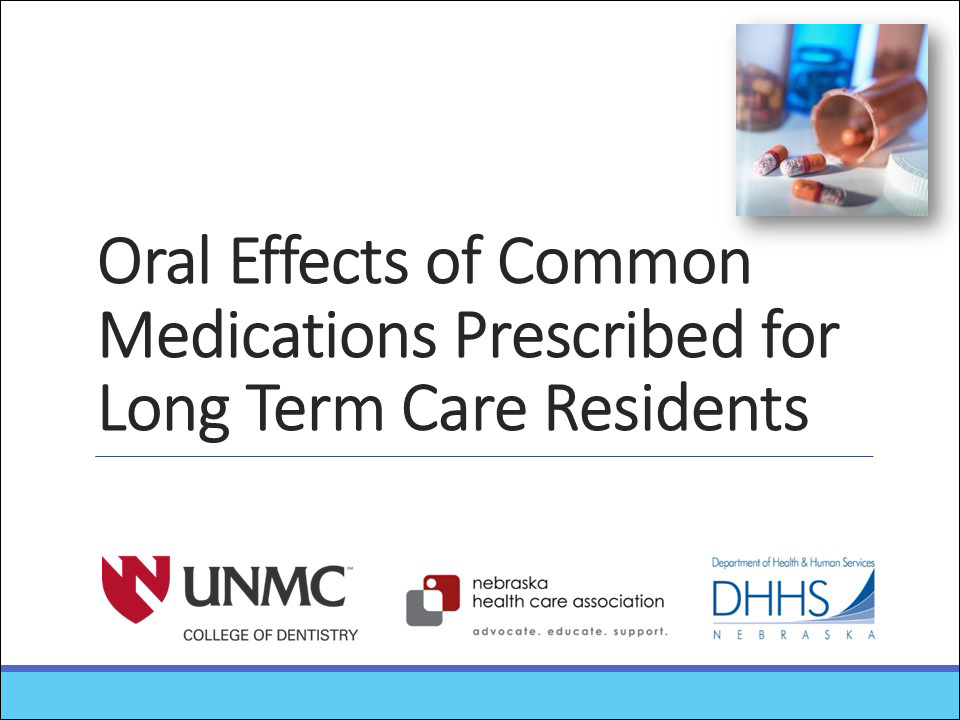
Download PowerPoint -or- View PowerPoint with Voiceover
Learning Objectives: 1.) direct care providers will be able to identify most prescribed / common medications used by long-term care residents; 2.) direct care providers will be able to discuss the common oral side effects of medications; 3.) direct care providers will be able to identify oral symptoms / side effects in residents and bring it to the attention of the charge nurse and/or dentist; and 4.) after consultation with charge nurse or dentist, direct care providers will help residents apply / use products designed to alleviate or manage side effects.
Objectives | Quiz | Quiz Answers | Evaluation | Certificate of Completion
Module 4
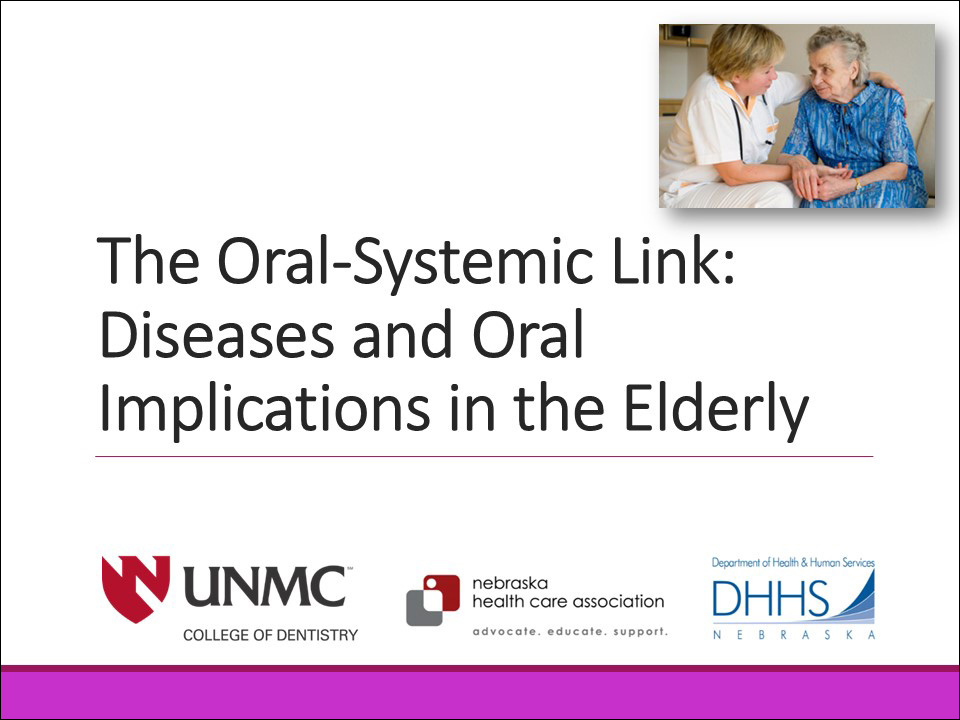
Download PowerPoint -or- View PowerPoint with Voiceover
Learning Objectives: 1.) given a systemic condition, the direct care providers will be able to describe the oral / systemic relationships in the elderly; 2.) the direct care providers will be able to recognize abnormal oral conditions and bring it to the attention of the charge nurse and/or dentist; and 3.) the direct care providers will adapt oral care to accommodate special systemic conditions in the resident.
Objectives | Quiz | Quiz Answers | Evaluation | Certificate of Completion
Module 5-1
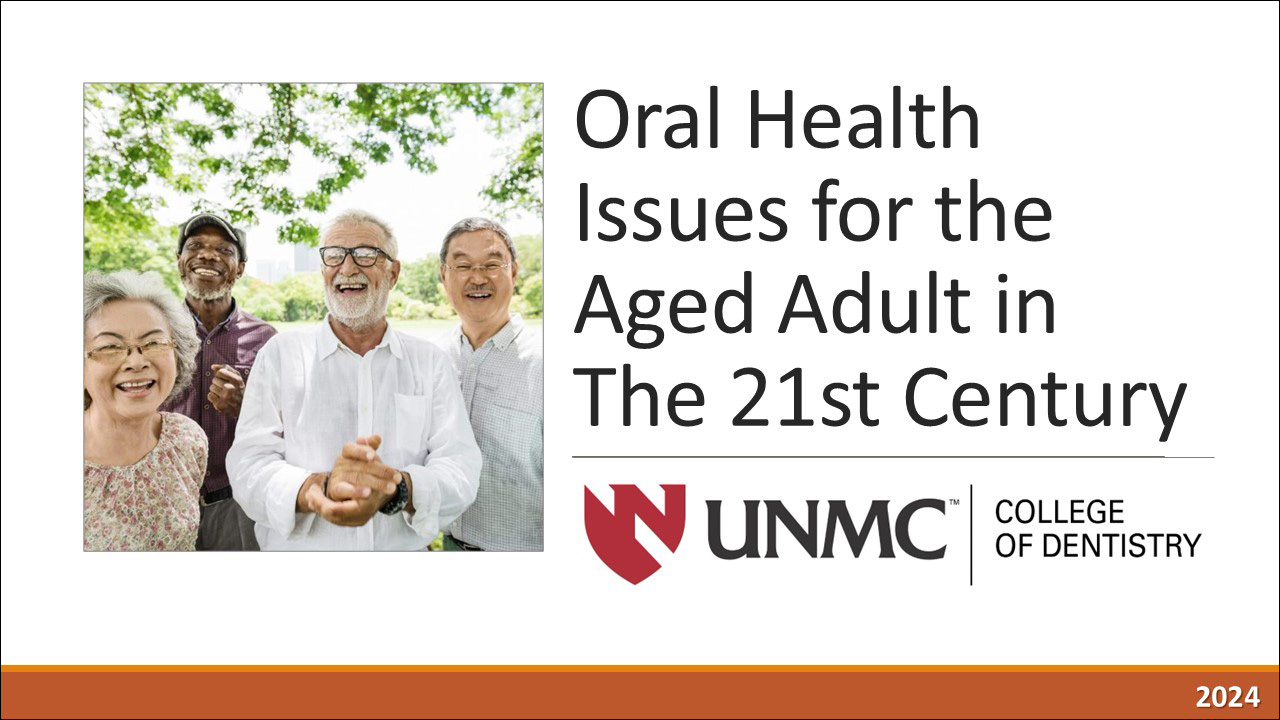
Download PowerPoint -or- View PowerPoint with Voiceover
Learning Objectives: 1.) identify compromising conditions affecting this age group that increase oral health needs; 2.) discuss the oral and systemic health interconnection and emphasize why oral health matters in the geriatric population; 3.) understand teledentistry as a viable option to address access to dental care for this age group; and 4.) discuss post-COVID 19 pandemic considerations in the dental office setting, and using new technology.
Module 5-2
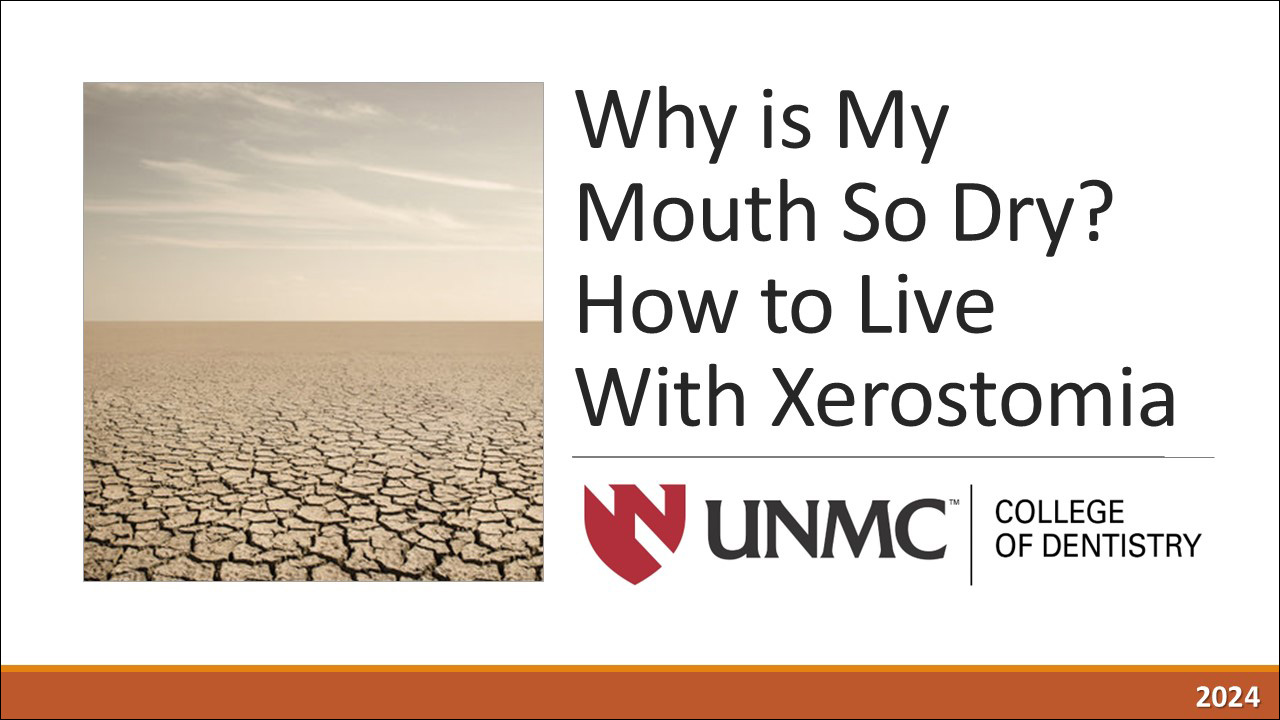
Download PowerPoint -or- View PowerPoint with Voiceover
Learning Objectives: 1.) discuss the symptoms of dry mouth and identify the common causes; 2.) identify most prescribed/common medications used by aged adults; 3.) understand why medication side-effects are more significant in the elderly; and 4.) understand compromised saliva and the role it plays in increased dental disease; and 5.) manage oral side-effects and/or alleviate symptoms with special oral care products.
Download product resources sheet.
Module 5-3
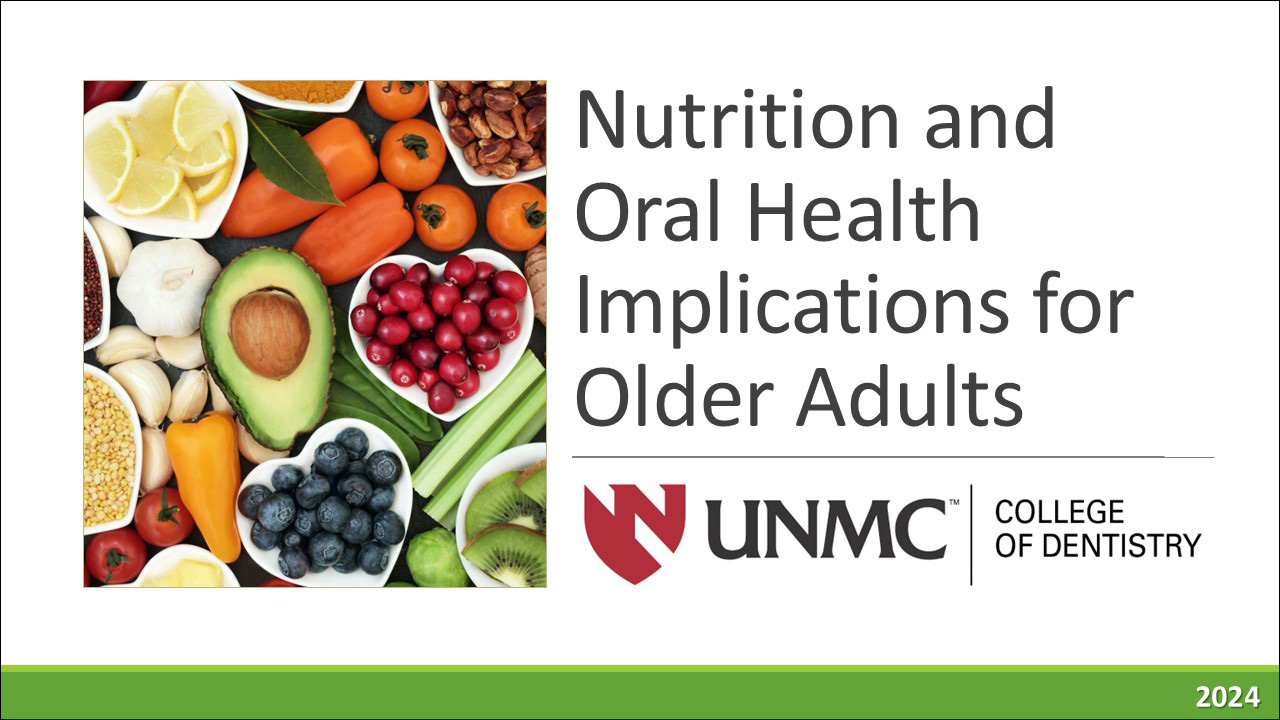
Download PowerPoint -or- View PowerPoint with Voiceover
Learning Objectives: 1.) identify oral health/dental diseases in older adults; 2.) discuss the mouth-body connection and how dental disease may increase the risk of systemic diseases; 3.) understand how dental disease/conditions can lead to nutrition deficiencies; 4.) discuss how nutritional deficiencies may lead to medical conditions that lead to alterations in the diet; 5.) understand how oral health and nutrition risk factors can lead to the inability to heal properly; 6.) recognize the importance of healthy eating guidelines; and 7.) perform a comprehensive diet analysis with recommendations for improvements.
Supplementary Materials
Research Articles
Aspiration Pneumonia
Bedside Oral Exam
Colonization of Denture Plaque
Nosocomial Pneumonias
Pneumonia - Scannapieco
Poor Hygiene in Nursing Homes
Preventing Aspiration
Ventilated Patients in ICUs
Ventilator-Associated Pneumonia
Oral Health Care for Adults with Intellectual/Developmental Disabilities
